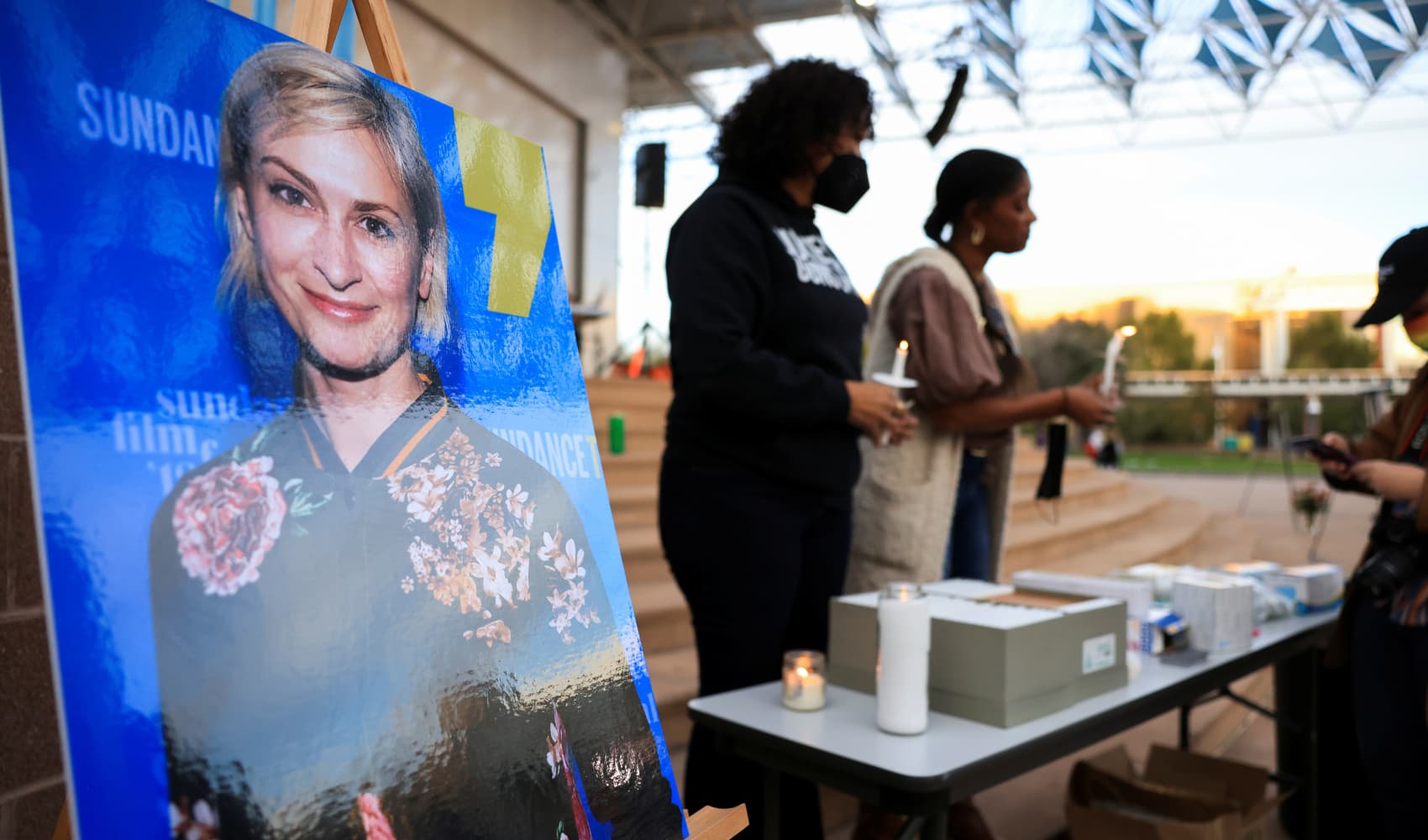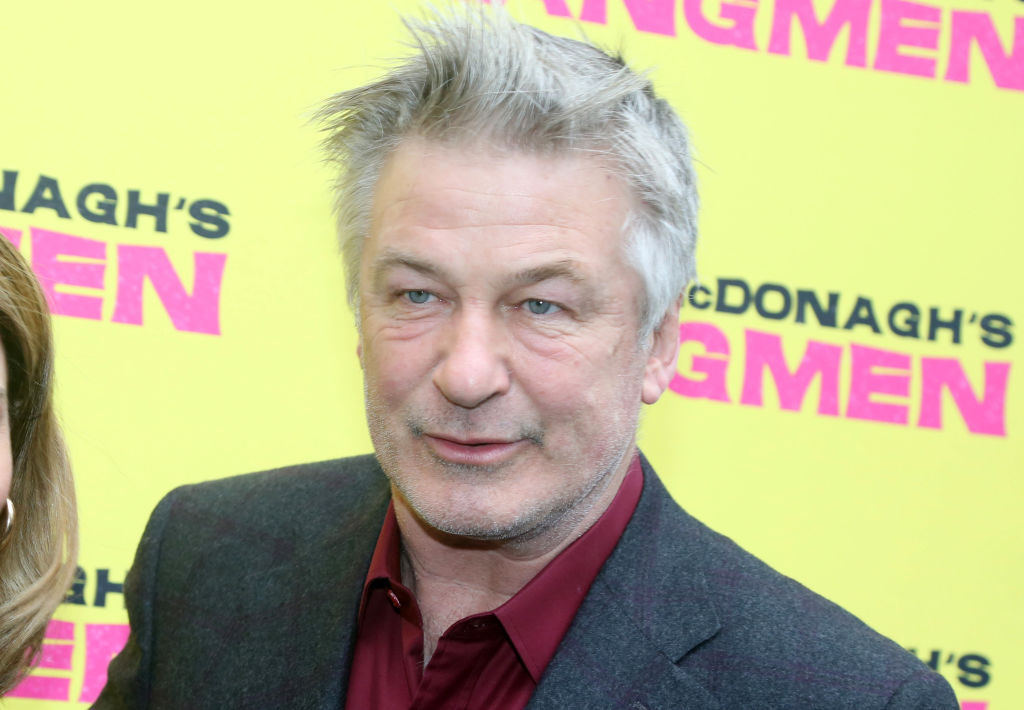A court ruling on Friday put an involuntary manslaughter case against Alec Baldwin on track for trial in early July as a judge denied a request to dismiss the case on complaints that key evidence was damaged by the FBI during forensic testing.
Judge Mary Marlowe Sommer sided with prosecutors in rejecting a motion to dismiss the case.
Defense attorneys had argued that the gun in the fatal shooting was heavily damaged during FBI forensic testing before it could be examined for possible modifications or problems that might exonerate the actor-producer.
The ruling removes one of the last hurdles before prosecutors can bring the case to trial with jury selection scheduled for July 9 in Santa Fe.
At trial, attorneys plan to call on witnesses from a court-approved list of more than 60 people. They include film director Joel Souza, who was wounded in the shooting as well as assistant director Dave Halls, who earlier pleaded no contest to negligent use of a deadly weapon, and an array of first responders, investigators, firearms experts and close-range witnesses to the shooting.
Baldwin isn't listed but has the right to testify at his own trial.
During a rehearsal on the set of the Western film “Rust” in 2021, Baldwin pointed a gun at cinematographer Halyna Hutchins when the revolver went off, killing her and injuring director Souza as the bullet became lodged in his shoulder. Baldwin has maintained that he pulled back the gun’s hammer but not the trigger and has pleaded not guilty.
The FBI conducted an accidental discharge test on the gun by striking it from several angles with a rawhide mallet, eventually breaking the gun. Prosecutors plan to present evidence at trial that they say shows the firearm “could not have fired absent a pull of the trigger” and was working properly before the shooting.
Baldwin has twice been charged in Hutchins’ death. Prosecutors dismissed an earlier charge, then refiled it after receiving a new analysis of the revolver that Baldwin pointed at Hutchins.
“Rust” armorer Hannah Gutierrez-Reed is serving an 18 month sentence on a conviction for involuntary manslaughter in the fatal shooting, as she appeals the jury verdict. It's likely the prosecutors will call her to testify at Baldwin's trial, despite her refusal to answer questions at a pretrial interview and instead invoke her constitutional rights against self-incrimination under the Fifth Amendment. A judge refused a request to compel her testimony by providing immunity.
Marlowe Sommer said that destruction of internal components of the firearm “is not highly prejudicial” to a fair trial and that Baldwin's legal team failed to demonstrate bad faith by investigators.
While Baldwin “contends that an unaltered firearm is critical to his case, other evidence concerning the functionality of the firearm on Oct. 21, 2021, weighs against the defendant’s assertions,” the judge wrote.
Sheriff’s investigators initially sent the revolver to the FBI for routine testing, but when an FBI analyst heard Baldwin say in an ABC TV interview that he never pulled the trigger, the agency told local authorities they could conduct an accidental discharge test, though it might damage the gun.
The FBI was told by a team of investigators to go ahead, and tested the revolver by striking it from several angles with a rawhide mallet. One of those strikes fractured the gun’s firing and safety mechanisms.
Defense attorneys say that the “outrageous” decision to move forward with testing may have destroyed exculpatory evidence.
Prosecutors said it was “unfortunate” the gun broke, but it wasn’t destroyed and the parts are still available. They say Baldwin’s attorneys still have the ability to defend their client and question the evidence against him.
In Friday's ruling, the judge said prosecutors will have to fully disclose at trial the destructive nature of the FBI forensic testing on the gun, including what was lost in the process and its relevance in reaching a verdict.
Several hours of testimony about the gun and forensic testing during online hearings in recent days provided a dress rehearsal for the possible trial against Baldwin. Attorneys for Baldwin gave long and probing cross-examinations of the lead detective, an FBI forensic firearm investigator and the prosecution’s independent gun expert, Lucien Haag.
Prosecutors plan to present evidence that they say shows the firearm “could not have fired absent a pull of the trigger” and was working properly before the shooting.
Since the 2021 shooting, the filming of “Rust” resumed but moved to Montana under an agreement with Hutchins’ husband, Matthew Hutchins, which made him an executive producer. The completed movie has not yet been released for public viewing.



